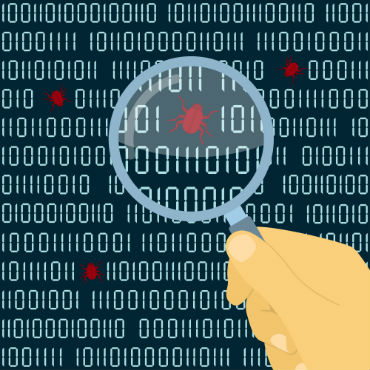Why bug bounty programs are worth the risk

Expert hackers aren't necessarily the folks you want to invite on your network, but according to a Pentagon expert, they're the best equipped to do an important job.

The bug bounty programs the Defense Department launched in 2015 with the agency's "Hack the Pentagon" pilot have found more vulnerabilities in shorter time frame and reduced testing costs dramatically, according to a digital service expert at the DOD.
In a presentation at a March 30 meeting of the Information Security and Privacy Advisory Board, the Pentagon's Hunter Price said the programs have found hundreds of vulnerabilities at a fraction of the cost of commercial penetration testing.
During the "Hack the Army" bounty program, concluded last November, the DOD paid out $150,000 in bounties to about 1,300 hackers who probed five public-facing DOD websites, Price said.
Contractors had tested the websites previously and found 10 low-risk vulnerabilities. But bug bounty hunters, he said, found the first vulnerability within five minutes and ultimately found 165 problems, some "high risk."
That result, he said, was "1,000 percent" return on investment, he said.
Getting the best hackers to participate can mean casting a wide net that can include hackers that have some legal baggage, he said.
Although participants in the 2015 Hack the Army and Hack the Pentagon pilots underwent background checks, the DOD has had to accept some risk.
Intense scrutiny, he said, "can scare off talent" who may be able to find more insidious system weaknesses, Price said. DOD weeded out some hackers from the programs "who we didn't want to pay for PR reasons," he said.
The General Services Administration is more welcoming to bug bounty participants -- and more lenient when it comes to background checks for participants, said Eric Mill, senior advisor for the Technology Transformation Service.
"We want to get a variety of people. I have no problem paying a teenager from Russia, if they can improve our system," Mill said.
The GSA, Mill said, isn't developing its bug bounty program for other agencies, only for itself. The scope of the program, Mill told FCW, could cover bigger, critical GSA services such as Cloud.gov and the shared service identity management tool Login.gov.
Although GSA’s bug bounty program won’t cover other federal agencies, some ISPAB board members wondered how it could be adapted as a shared service for all of government.
"It's possible," said Mill, but any future bug bounty shared service would have to "understand how decentralized" agencies can be and one-size-fits-all approaches could complicate such an effort.


